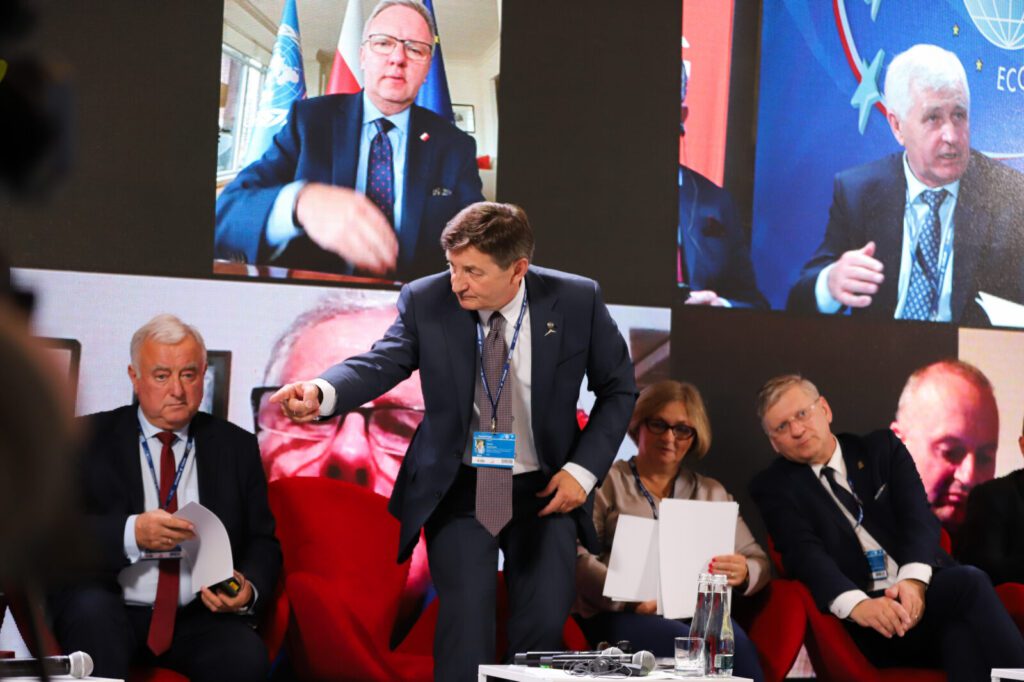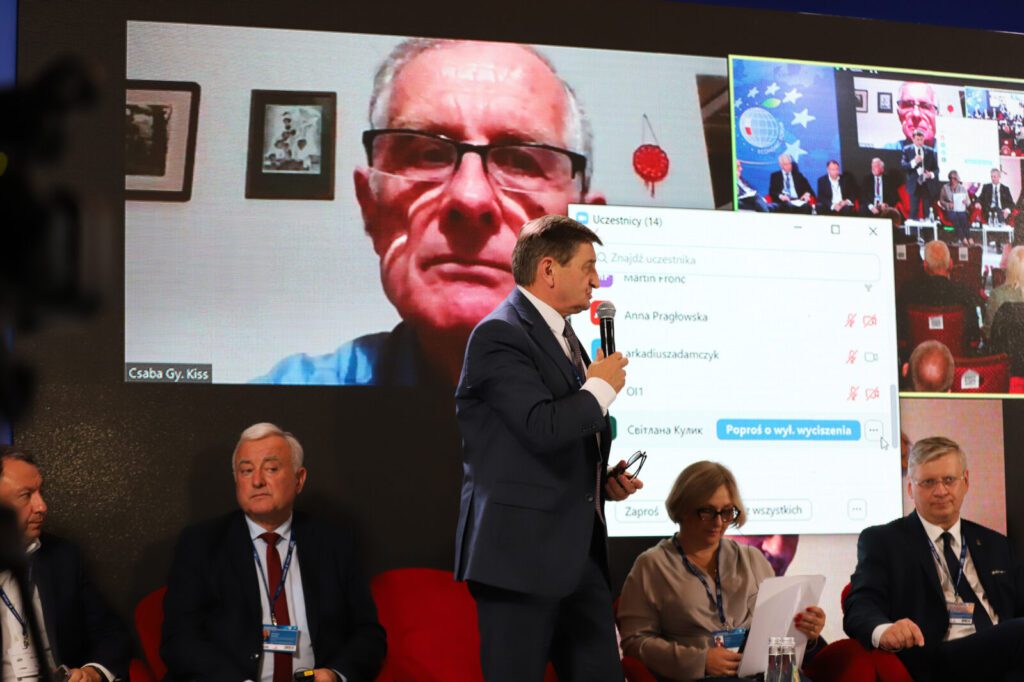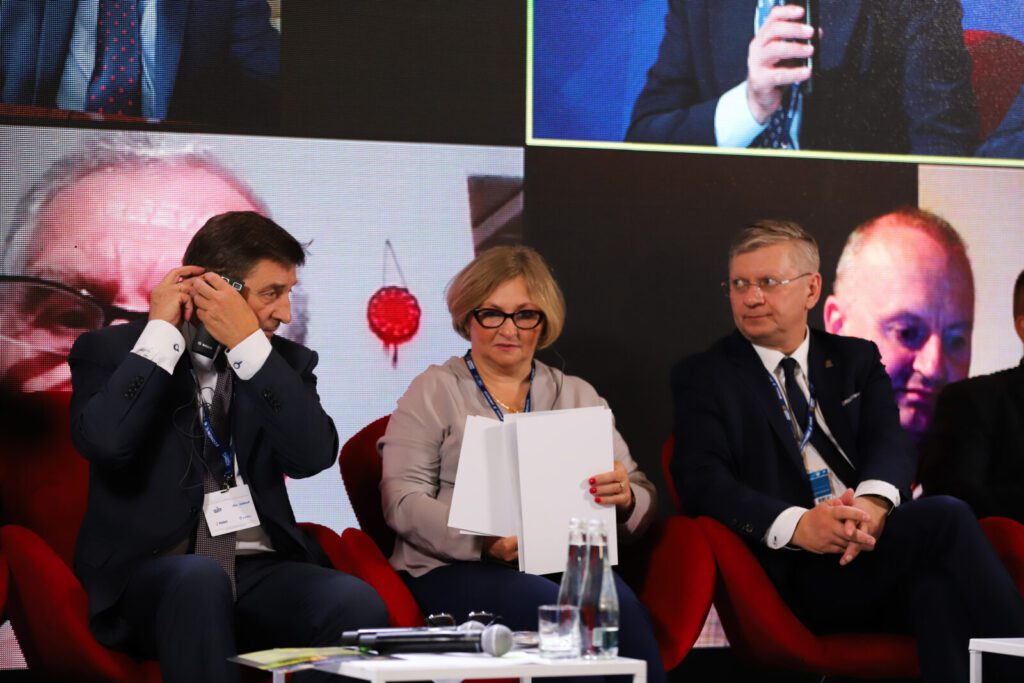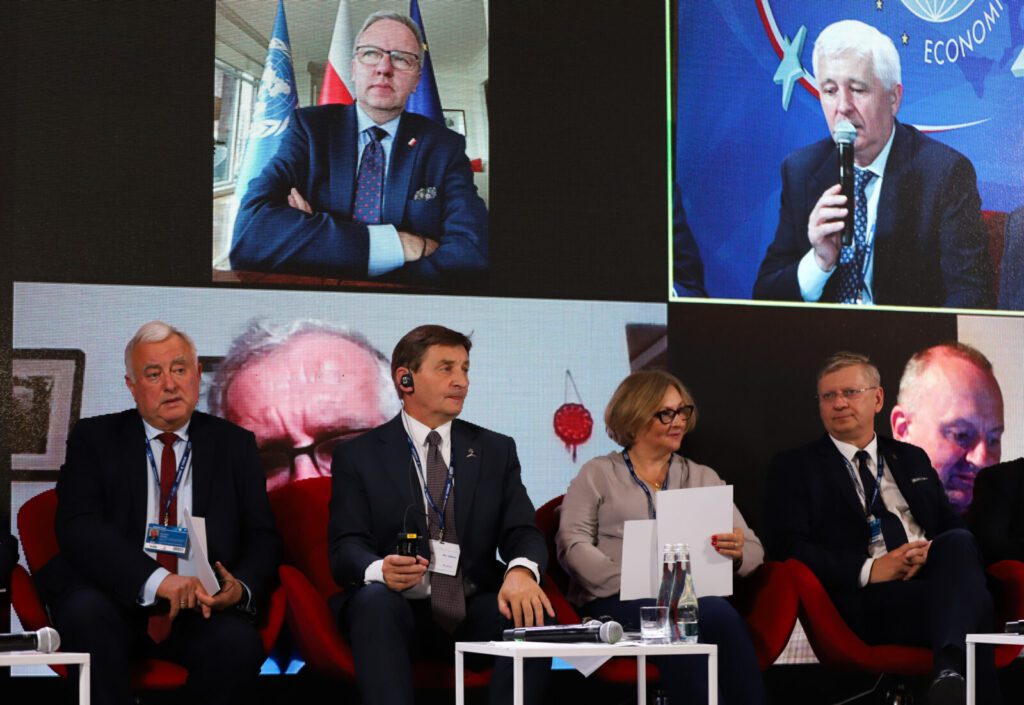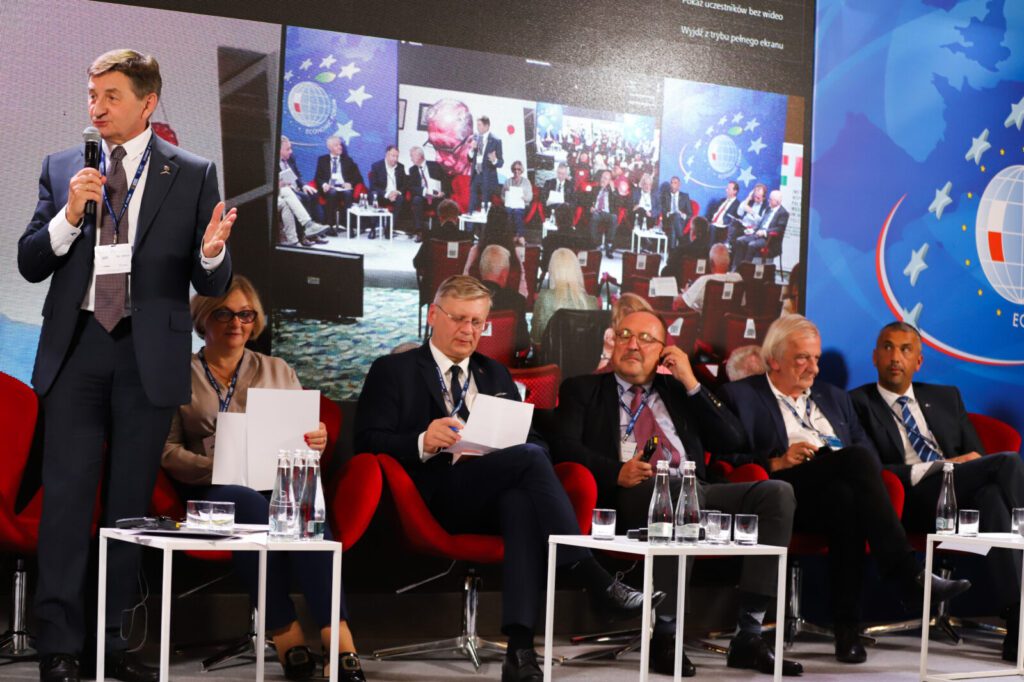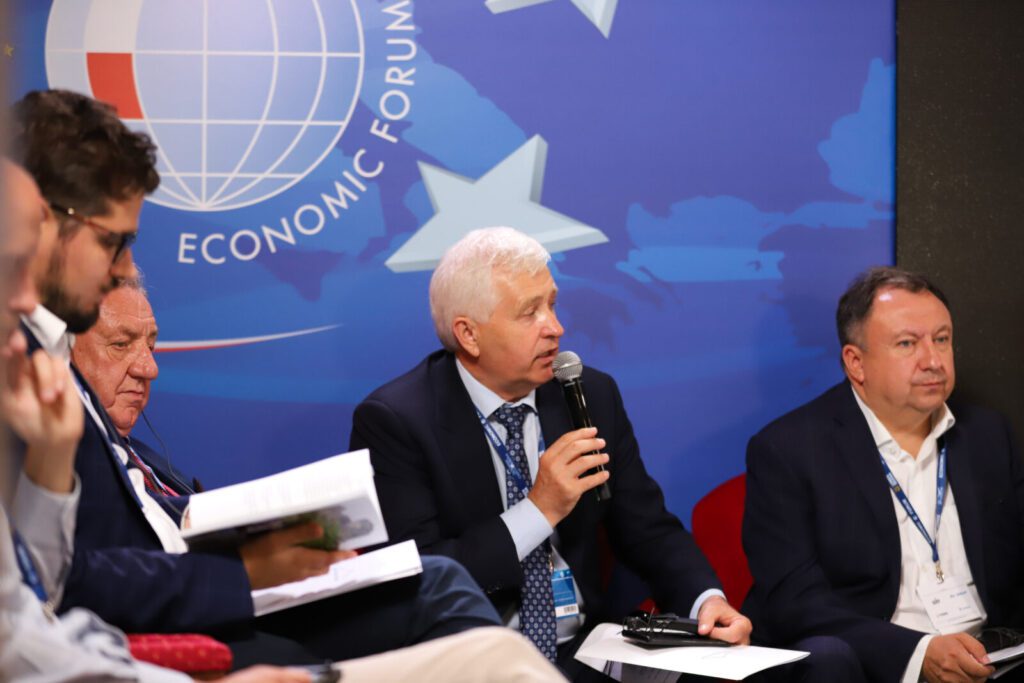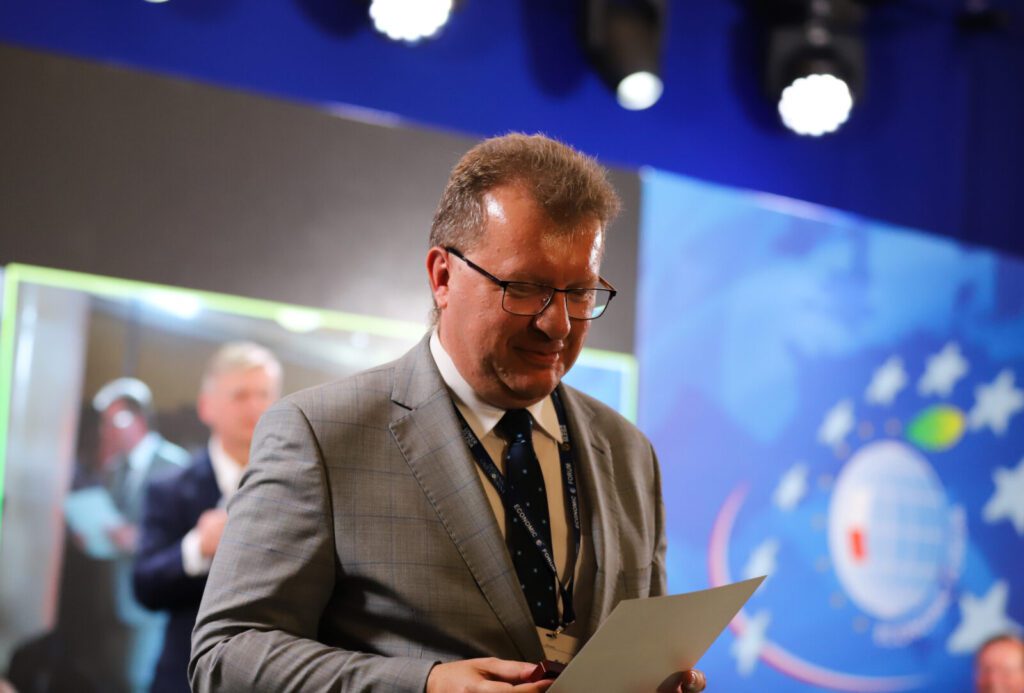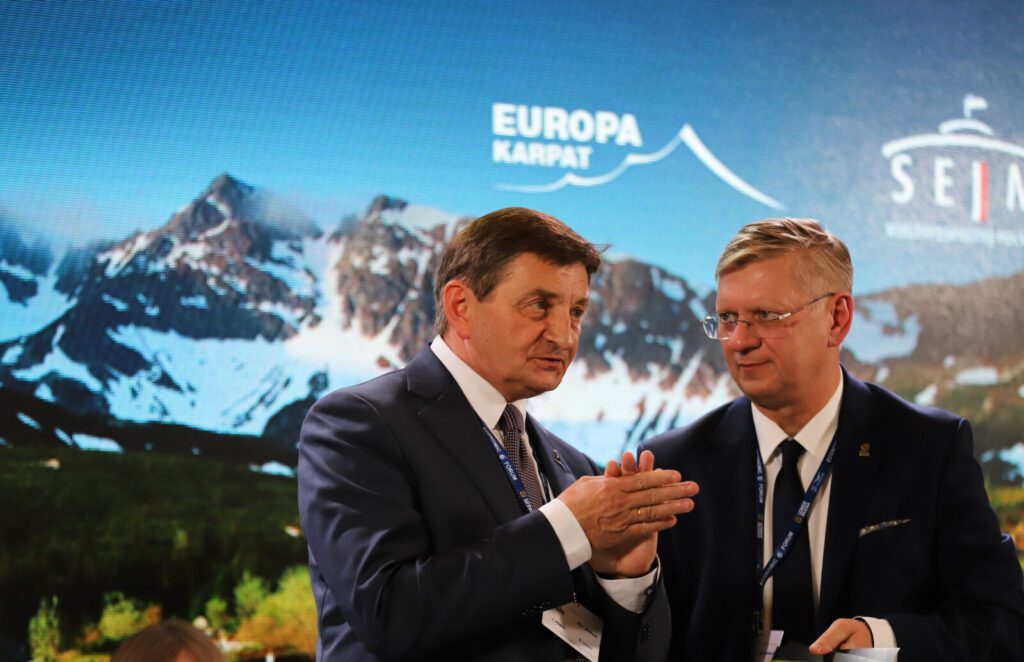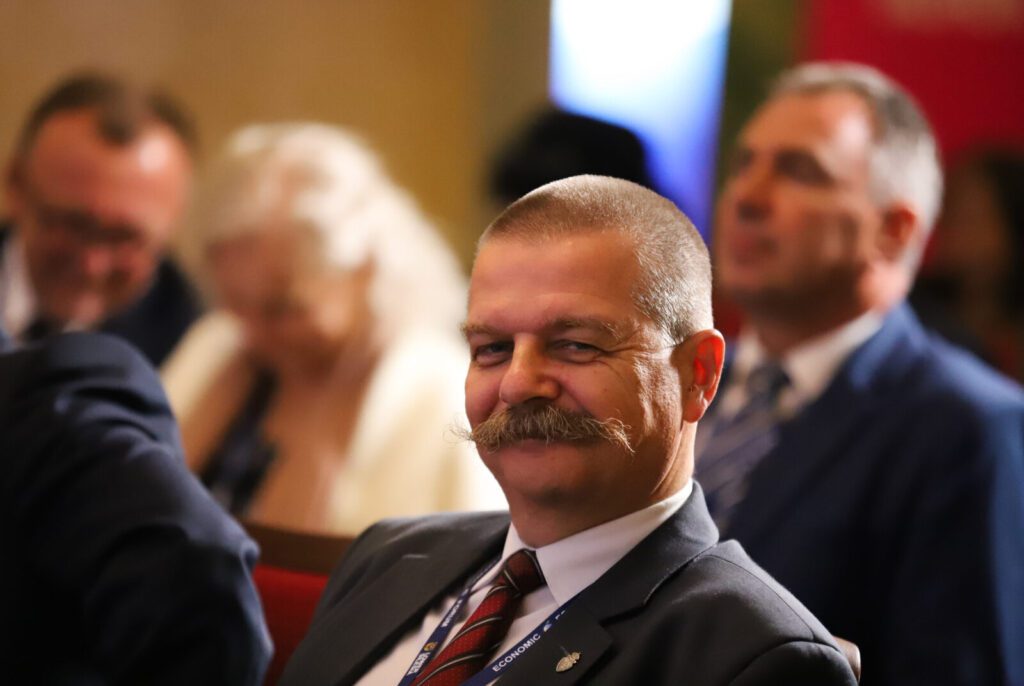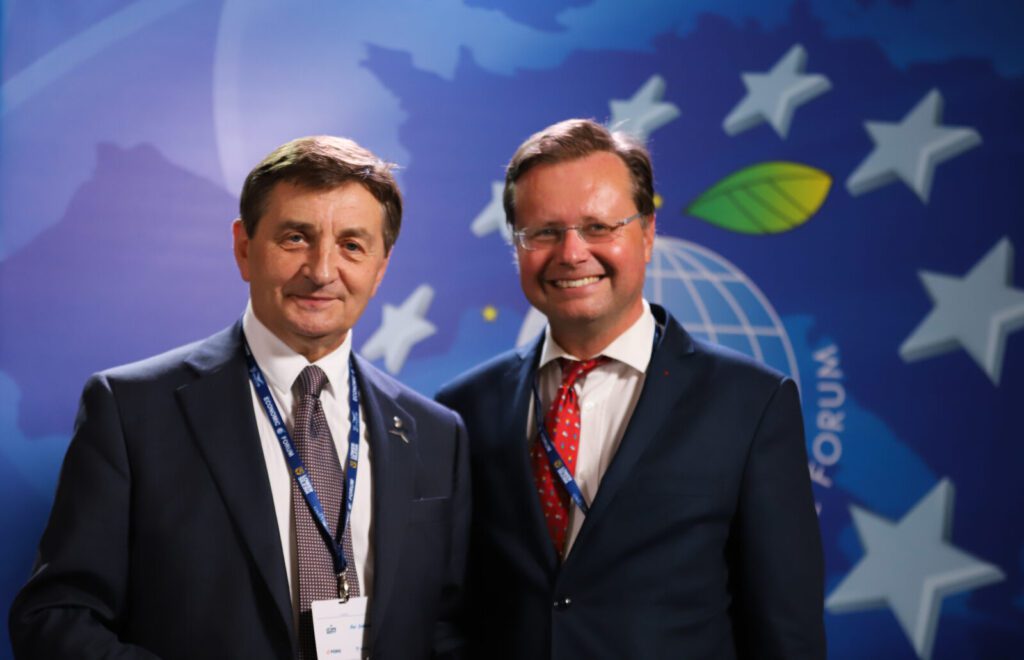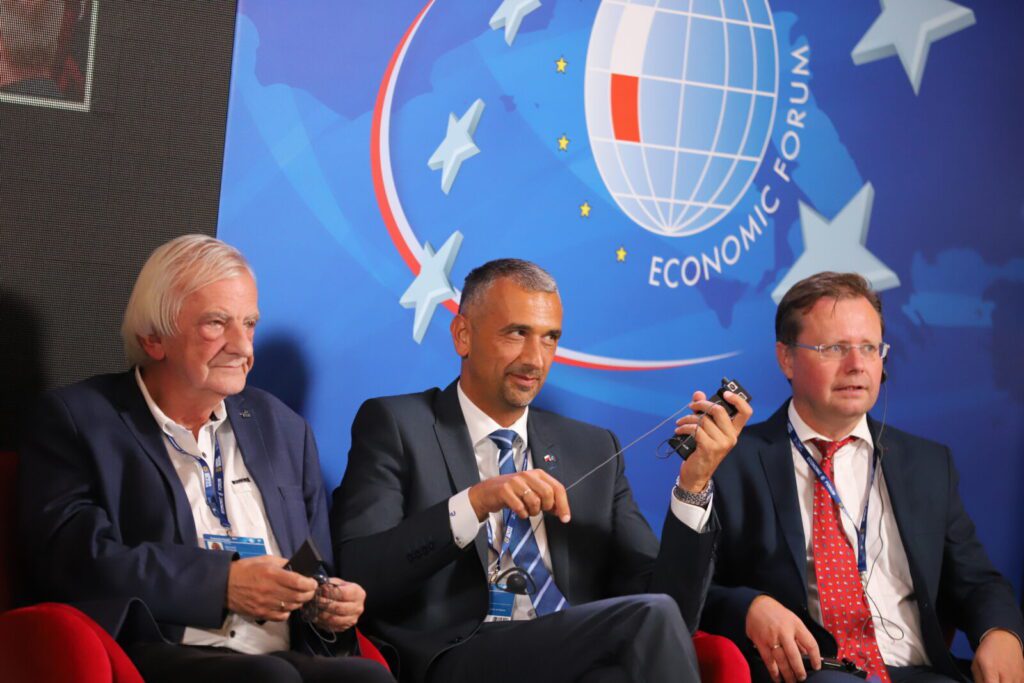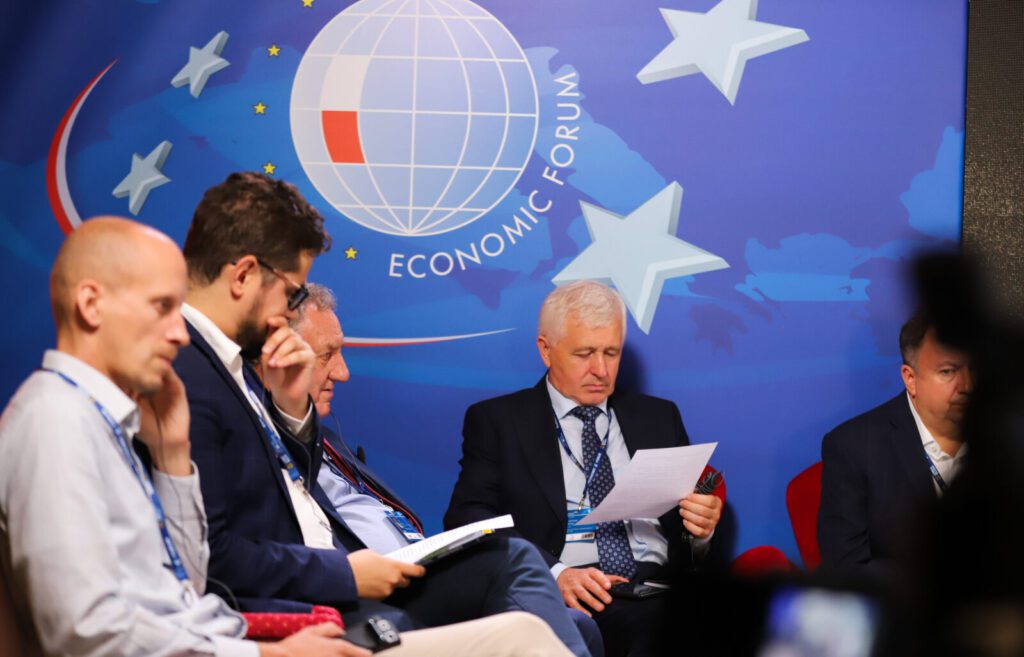On September 6, 2022, a meeting of the Program Council of Carpathian Europe Clubs was held in Karpacz. Chairman of the Council and the Foreign Affairs Committee of the Sejm RP Marek Kuchcinski introduced the idea of the Clubs, and also reported on the meeting in Budapest, where a debate was held between the Polish and Hungarian delegations on the vision of cooperation in Europe.
The Speaker pointed out the hypocrisy of information in the media space, the frequent aftermath of which is mutual misunderstanding among European nations, which means we should create discussion clubs of Carpathian Europe to discuss all kinds of issues, including difficult ones.
Maciej Szymanowski, director of the Felczak Institute, stressed that the Carpathian Europe Clubs serve a primordial purpose, so that in the meantime, when major conferences are not taking place, there is communication, an intellectual hotline. This is doubly important in this part of Europe, especially at a time of ongoing information warfare. It is always worthwhile to have access to first-hand information and to know what is happening in our neighboring countries and what this part of Europe is really living, which is not necessarily well visible from the Vistula River. Dir. Szymanowski presented a proposal to send an appeal to people of science, culture, media and other opinion makers.
Professor Csaba György Kiss from Hungary discussed a preliminary plan for an international anthology of the Carpathian Mountains, which would include selections from the national literatures belonging to the Carpathian area and would thus make it possible to bring this common place of memory closer in a multifaceted perspective. It would serve primarily as a source of knowledge for the younger generation and all interested parties. It would find application at many different levels of education.
Professor Jan Draus, a historian from the University of Rzeszow, argued that it would be best if historians, political scientists, other academics led the discussions, and politicians listened. In different circles, on different topics, previously agreed upon, of course. For example, a discussion could be held on Balázs Orbán's recently published book on Hungarian politics, which also appeared in Polish.
Mykhaylo Khariy from the Center for Transformation said that together with Ukrainian civil society and with American intellectuals, congressmen are working on the transformation of Ukraine. And a very important part of this plan is the experience of Poland, so they are working with Polish politicians and experts, also to create centers for transformation, cooperation and transition. - We are trying to develop new knowledge about transformation, and this knowledge should be transferred to Ukrainian politicians and other important members of our society who are involved in the transformation process. We are working with the Americans and at the moment, together with Mr. Kuchcinski, we will create a channel of communication with the Americans, with the Atlantic Council, the North Atlantic Group. And we will create a channel of communication between just the parliamentarians of Ukraine and the Polish Sejm, Polish experts and experts from America, the United States. And I think it would be useful for Ukraine right now. It is not a strategy for the whole region, it is a strategy just for Ukraine," Khariy said.
Jan Malicki, director of the Center for Eastern Studies, alluded to the fact that in our area of Central Europe or, more broadly, the Inter-Mediterranean, the Tri-Mediterranean, there is a need for the broadest possible institutionalization of the concept of ventures which, if not formally institutionalized, are in danger of withering or fading away. He mentioned that over the past 30 years, even in Poland alone, there have been more than a dozen excellent ideas concerning the East, and only a few have survived. Simply because if once there is a lack of either strength, enthusiasm, persistence or money, even the most interesting institutions and concepts collapse. And if there is an institution, there is a huge opportunity for survival. - I am honored to be part of the creation of this concept. On me fell, fortunately, only 1/3 of the task, namely the creation of an international school for the training of state, local government personnel. This I will say, where the Study of Eastern Europe would be the operator, but it would be created in connection and with the patronage and participation of an institution that has already existed for several years, namely Collegium Carpathicum," said Director Malicki.
Krzysztof Szczerski, Poland's ambassador to the UN, conveyed that there is a chance for us to have a Carpathian exhibition during the next session of the General Assembly. It is all the more special for the Carpathians because the chairman of the Speaker of this session is a Hungarian diplomat. Hungary will preside over the UN General Assembly for this coming year, so there is all the more opportunity to do this meeting around the exhibition also in the spring in New York.
Emanuelis Zingeris MP spoke about the legacy of the Republic and the figures that built Central Europe for hundreds of years. - What goes to our legacy, which was built by, it wasn't the Borderlands, it was Vilnius, it was Krakow, it was ours, it was King Batory and it was everything related to all the figures and characters of Emilia Plater of course and Kalinowski, and before that by of course and Kosciuszko and hundreds, hundreds of families who built, families built, families of our ... they built it all. So then please, if you can write in the third point about the relationship of Central Europe and I would say in English: and special relation to the Baltic states. Special ties with the Baltic states," Zingeris said.
Dénes András Nagy, Europeanist, Head of the Visegrad College Plus Program, Institute for Strategic Studies, Ludovika argued that the future of the Carpathian region depends on the next generation of leaders, which is why it is important to organize annual meetings of exceptional young personalities so that our future leaders can make contacts early in their careers. The Organization of Turkic States, of which Hungary is an observer member, regularly organizes such meetings.
Małgorzata Jarosińska-Jedynak, secretary of state at the Ministry of Funds and Regional Policy, stressed that the Ministry, which is also responsible for the preparation of the Carpathian strategy and is working very hard on this strategy, needs support in convincing the Romanian and Czech sides of how important this initiative is. The activities bringing us closer to the fact that another macro-regional strategy will be created, a little due to the activities taking place today in Ukraine, has been slowed down, while all the time activities are being carried out so that both the Romanians and the Czechs join very strongly in these areas. There is a consensus at the regional level, and there no one sees any obstacles to making these strategies work, while greater obstructionism arises at the political, governmental level.
Mykola Kniazhitsky He said that Ukraine is doing everything to become a member of the European Union. - We are already candidates and this is a challenge for the Carpathian region. The Carpathian countries will have real influence and a real voice in the Union before other countries, he argued.
Zsolt Németh, chairman of the Foreign Affairs Committee of the Hungarian National Assembly, said that Marek Kuchcinski was the driving force, the engine behind the idea of Carpathian Europe. For the past few years, Poland has been a very important player when it comes to creating this economic space through the III C initiative. She has produced very concrete, practical results. He also said that Ukraine is under attack at the moment, Central Europe must stand behind it. - It really is a vital issue and our support is absolutely essential. And our sovereignty is under threat. Not only by Russian troops, but also by a serious economic crisis. We see energy prices going up, what is happening, inflation is rising, interest rates are changing dramatically. It's actually becoming all unpredictable, an unimaginable challenge. So we have to defend ourselves against this, because it also threatens our sovereignty, in various ways. One such threat, for example, is instability, social tensions that are growing, we feel it. There are demonstrations all over Central Europe, there are demonstrations, protests. Soon there will be elections in Poland. The kind of frustration we see in society is certainly a component, an element in this situation. Social discontent that weakens our sovereignty. We also need to understand that there is a huge danger of growing debt. In previous years, we tried somehow to cope with pressure from the IMF and financial institutions. We succeeded somewhat, but now it's coming back. In various ways our sovereignty can be threatened, and it is very important for all of this for the Central European economic space and for cooperation within the Carpathian region," Nemeth said. He also recalled the discussion in Budapest with the participation of Marshal Terlecki and Kuchcinski,Maciej Szymanowski and Balázs Orbán. The spread of ideas and Polish-Hungarian relations is taking place at a good time, the discussion clubs, and the Carpathian, European clubs, can prove to be very helpful in this matter, in combating propaganda and disinformation.
Matyáš Zrno, editor-in-chief of the Konzervativní Noviny portal, recalled the migrant crisis, which has kind of set the Visegrad Group back in motion. It turned out that today we are in a similar situation, because of course there are differences, it is different now in Hungary, there is a war in Ukraine. That wasn't there before. Slovakia is kind of somewhere in the middle, but the current situation is that we have a war and an energy crisis. - Germany is a powerful neighbor of the Czech Republic, the closest one, but why couldn't we diversify, and thus strengthen our economic infrastructure, by taking something like this to Central Europe, where Swinoujscie is located, Zrno asked. - When I came here from the Czech Republic, I realized how difficult it is to reach the Polish border by car or train. For the last 30 years it was all roads that were built to the west, not to the south, so this is one of the few times in history when we can just benefit from strengthening relations with Poland. Our prime minister, who is there on the upper floors discussing with his Polish counterpart, discussing the Polish way of thinking of the political class with regard to the Czech Republic... But it is also up to us, it is up to us to proceed with some practical, concrete concepts, not just such loose visions, debates, that yes, it would be nice, but you have to add something practically to it, so that it is economic, infrastructural and has such specific goals," the editor argued.
Prof. Marian Suplata He stressed that our countries must stick together. - Visegrad is a strategic necessity for all of us, and it saddens me when I see voices to the contrary in my country, or in other Visegrad countries. This effort to partner with other countries is simply irresponsible. Just as we were revisiting the CEFTA system, of course, this should not automatically lead to the neglect of the concept of a united Europe. It is indeed the idea of Europe, the idea of Schuman actually rests on very strong foundations, and we always have this argument that indeed the foundations are sound. Not only Schuman, but also Adenauer, De Gasperi. Konrad Adenauer made a very important statement at the Brussels conference in 1996: The European Community cannot be a rigid corset, for the member countries, but should simply serve their development, and that is another matter. This is a very important quote from Adenauer. And when I look at the text of the declaration, it actually seems to be insanely important. It should not be a rigid corset. It should serve development, individual member countries regardless of whether they are small or large. As Ambassador Szczerski has already proposed, including from the diplomatic community," Suplata said.
Prof. Igor Cependa He argued that the war and the pandemic have disrupted many things that are related to the evaluation of the implementation of this important project, but a good opportunity has been created to expand the university. - This year is the completion of the cross-border project Poland-Ukraine-Belarus 2012-2020, the first stage: the reconstruction of the former Warsaw University observatory on Mount Pop Ivan, an international research center, an observatory. Already this year it will start operating as a research facility, because regardless of the war we managed to buy meteo equipment of the Finnish company that supplies us, for 60 thousand euros under a grant. Of course, this equipment will already be on the observatory, and this will be our university contribution to the realization of the Carpathian Europe concept, because there is an observatory and a meteo station in Slovakia on Lomnický Peak, which is 2,600 meters, there will be a second station above 2,000 meters meteorological station that will start operating, and of course it will be a powerful research center of Ukrainian, Polish and of course Carpathian universities," said Rector Cependa.
.photo by Marta Olejnik

